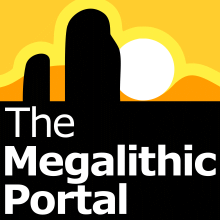<< Text Pages >> Gwaii Haanas Caves - Cave or Rock Shelter in Canada
Submitted by bat400 on Saturday, 29 December 2007 Page Views: 6321
Natural PlacesSite Name: Gwaii Haanas CavesCountry: Canada
NOTE: This site is 13.022 km away from the location you searched for.
Type: Cave or Rock Shelter
Latitude: 52.440000N Longitude: 131.38W
Condition:
| 5 | Perfect |
| 4 | Almost Perfect |
| 3 | Reasonable but with some damage |
| 2 | Ruined but still recognisable as an ancient site |
| 1 | Pretty much destroyed, possibly visible as crop marks |
| 0 | No data. |
| -1 | Completely destroyed |
| 5 | Superb |
| 4 | Good |
| 3 | Ordinary |
| 2 | Not Good |
| 1 | Awful |
| 0 | No data. |
| 5 | Can be driven to, probably with disabled access |
| 4 | Short walk on a footpath |
| 3 | Requiring a bit more of a walk |
| 2 | A long walk |
| 1 | In the middle of nowhere, a nightmare to find |
| 0 | No data. |
| 5 | co-ordinates taken by GPS or official recorded co-ordinates |
| 4 | co-ordinates scaled from a detailed map |
| 3 | co-ordinates scaled from a bad map |
| 2 | co-ordinates of the nearest village |
| 1 | co-ordinates of the nearest town |
| 0 | no data |
Be the first person to rate this site - see the 'Contribute!' box in the right hand menu.
Internal Links:
External Links:
Caves in British Columbia, Canada.
This National Park Reserve includes many caves that were used up to 14000 years ago by early emigrants in the Americas.
The majority of these sites are not accessible to the casual visitor.
Note: Finds in caves place early Americans, and their tools and prey, at Canadian coastal areas.
You may be viewing yesterday's version of this page. To see the most up to date information please register for a free account.
Do not use the above information on other web sites or publications without permission of the contributor.
Click here to see more info for this site
Nearby sites
Click here to view sites on an interactive map of the areaKey: Red: member's photo, Blue: 3rd party photo, Yellow: other image, Green: no photo - please go there and take one, Grey: site destroyed
Download sites to:
KML (Google Earth)
GPX (GPS waypoints)
CSV (Garmin/Navman)
CSV (Excel)
To unlock full downloads you need to sign up as a Contributory Member. Otherwise downloads are limited to 50 sites.
Turn off the page maps and other distractions
Nearby sites listing. In the following links * = Image available
212.9km NNE 13° Lucy Islands Ancient Village or Settlement
317.5km E 90° Nuxalk Petroglyphs Rock Art
395.8km NE 36° 'Ksan Historical Village and Museum* Museum
454.4km N 352° Petroglyph Beach* Rock Art
456.0km NNW 343° On-Your-Knees Cave* Cave or Rock Shelter
490.2km ESE 117° Ancient clam gardens on Quadra Island* Ancient Mine, Quarry or other Industry
543.7km ESE 122° Comox Estuary* Ancient Village or Settlement
544.1km ESE 122° Comox Harbor Ancient Fish Trap* Ancient Mine, Quarry or other Industry
558.5km ESE 119° Pictographs near Powell River ferry terminal Rock Art
563.9km NNW 337° Hidden Falls Ancient Village or Settlement
572.5km SE 125° Sproat Lake Petroglyphs* Rock Art
582.0km ENE 71° Beaverly Workshop Ancient Mine, Quarry or other Industry
617.8km ESE 117° Salmon Inlet Barrow Cemetery
627.5km ESE 119° shíshálh Nation tems swiya Museum Museum
639.1km ESE 122° Petroglyph Provincial Park (British Columbia)* Rock Art
641.7km ESE 121° Lock Bay Site* Rock Art
647.1km ESE 122° Cedar by the Sea Petroglyphs* Rock Art
651.3km ESE 121° Degnen Bay Site* Rock Art
659.1km SE 131° Makah Cultural and Research Center Museum
669.2km SE 133° Ozette Ancient Village or Settlement
669.7km ESE 119° Museum of Anthropology - University of British Columbia* Museum
671.4km SE 133° Wedding Rock* Rock Art
673.4km ESE 118° Skalsh Rock* Rock Outcrop
673.4km ESE 118° Coast Salish Stone Fish Weir* Stone Row / Alignment
675.3km ESE 118° Xwayzway Village* Ancient Village or Settlement
View more nearby sites and additional images



 We would like to know more about this location. Please feel free to add a brief description and any relevant information in your own language.
We would like to know more about this location. Please feel free to add a brief description and any relevant information in your own language. Wir möchten mehr über diese Stätte erfahren. Bitte zögern Sie nicht, eine kurze Beschreibung und relevante Informationen in Deutsch hinzuzufügen.
Wir möchten mehr über diese Stätte erfahren. Bitte zögern Sie nicht, eine kurze Beschreibung und relevante Informationen in Deutsch hinzuzufügen. Nous aimerions en savoir encore un peu sur les lieux. S'il vous plaît n'hesitez pas à ajouter une courte description et tous les renseignements pertinents dans votre propre langue.
Nous aimerions en savoir encore un peu sur les lieux. S'il vous plaît n'hesitez pas à ajouter une courte description et tous les renseignements pertinents dans votre propre langue. Quisieramos informarnos un poco más de las lugares. No dude en añadir una breve descripción y otros datos relevantes en su propio idioma.
Quisieramos informarnos un poco más de las lugares. No dude en añadir una breve descripción y otros datos relevantes en su propio idioma.